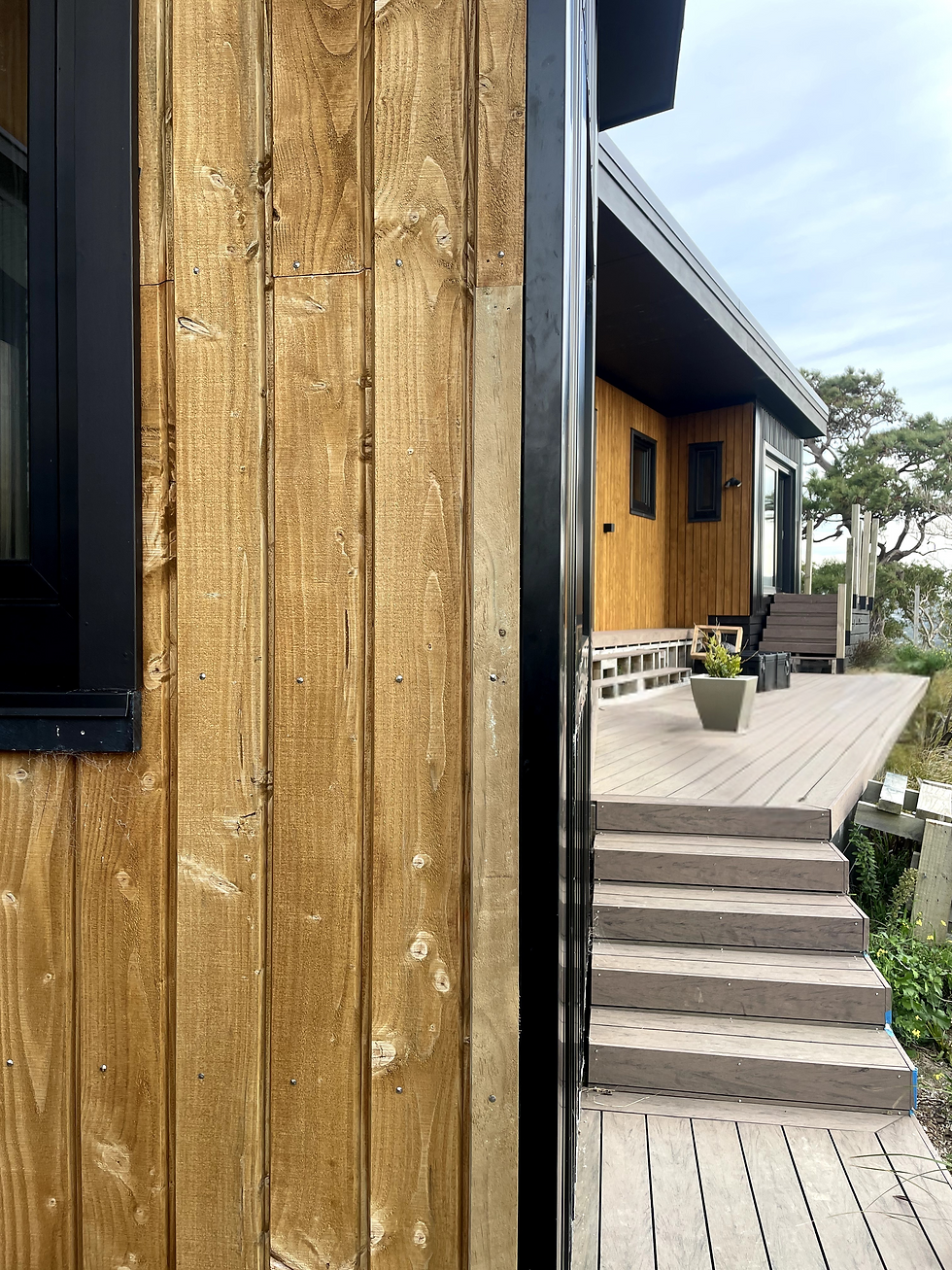5 Non-Negotiables For An Energy-Efficient Home
- Nov 30, 2022
- 3 min read
Updated: Jul 5, 2023
Wellington Builders | Design & Architecture Services | Eco-Friendly Design | High Performing Home | Structural Insulated Panels | Energy-Efficient Home

You’re planning to build an energy-efficient home? Good for you! We would love to give you some tips on what we think are non-negotiables to achieving this (and this doesn’t include technology that can be installed after the build to help with your home’s energy-efficient performance).
Shall we start? Great! Here are our top 5:

1) Structural Insulated Panels (SIPs)
There’s a good reason why SIP homes are becoming more popular these days – they’re super energy-efficient! The exceptional insulation in the walls guarantees airtightness which results in a dry, warm home. This also means less is spent on heating and cooling than in a standard timber home. Win, win! (If you’d like to know more about SIPs, check out our A-Z guide here.)

2) A Good Ventilation System
Because there is no airflow within the walls of the SIPs, a good ventilation system is needed. Installing a Mechanical Heat Ventilation Recovery (MHVR) system will ensure that fresh air from outside is brought in and distributed evenly throughout the house, replacing 'stale' air while filtering out dust, pollen, and other allergens.
A good de-centralised ventilation system such as e2 and eGo by Lunos also has a very low energy consumption rate of just 1.4 watts in base load operation – far below the limit for such systems.

3) Quality Windows
It’s true that you get what you pay for when it comes to windows. Up to 50% of heat loss in a home is through the windows, so it makes sense to invest in good quality. Double-glazing is the standard in New Zealand but in some parts of the country, it could be worth opting for triple-glazing.
Thermally broken windows add that extra layer to make it difficult for heat and cold to transfer across the frame (note that this is not an option for timber frames).
And then of course there’s Low E (short for ‘emissivity’), which helps to reduce condensation – a must for New Zealand windows!
If you’d like to know more about high-performing windows, check out this article.

4) Low Energy Lighting
Most new homes use LEDs because they are cheap to run, last a long time (at least 15,000 hours), give off very little heat and, of course, are energy efficient. Another plus is that they come in a range of options from bulbs to downlights and dimmable to non-dimmable. According to Genless, we would avoid 82,000 tonnes of greenhouse gas emissions per year (the equivalent of 34,000 petrol cars!) if every house in New Zealand installed LED lighting!
The next best option after LEDs is fluorescent lighting. They last longer and are cheaper than your standard incandescent lightbulb and use around 80% less energy.

5) Photo Voltaics (PV)/Solar Panels
Living completely off-grid isn’t for everyone but installing a few panels can make a big difference in saving energy. The standard New Zealand home uses around 8,000 kWh per year (20 kWh per day). Using solar panels on a high-performing home can save you about 1,000 – 2,000 kWh per year.
If you choose to run 100% of your energy through PV, then the 6,000 - 7,000 kWh per year saved, would cost $0! Although the initial cost of investing in these panels can be pricey, the long-term energy savings really add up. (Especially if you live in an area of New Zealand where the per kWh price is high and/or is notoriously unreliable, with power cuts/surges and the like). It's also sometimes cheaper in more remote areas to install panels and be completely off the grid because it costs more to get the power to a building site than it does to install a full off-the-grid PV system.
If you’d like more information on solar panels, please check out this article.
Our Green Abode team are passionate about reducing energy costs and leaving a low carbon footprint. Talk to us if you would like to discuss your home plans.

.png)



Comments